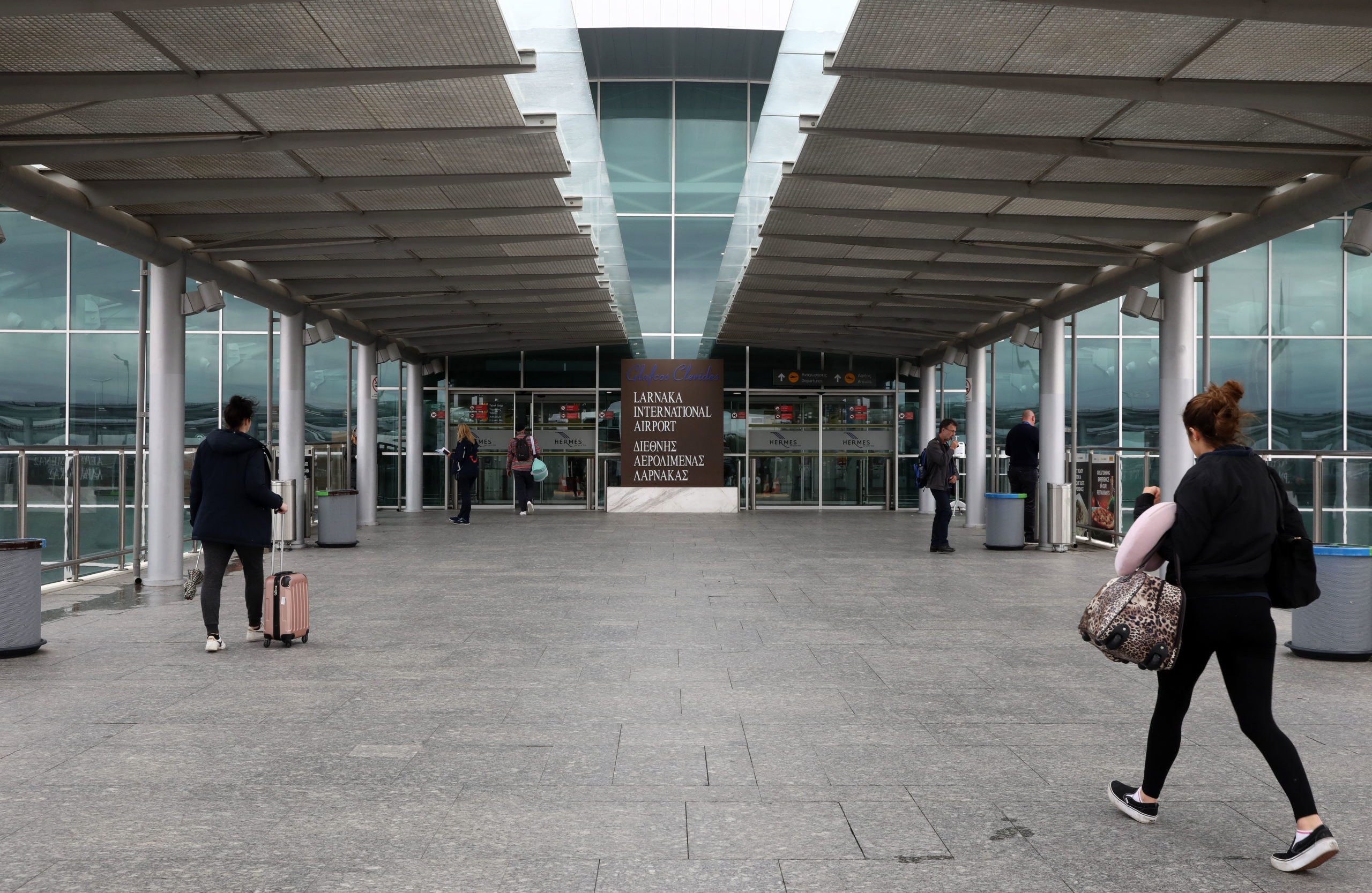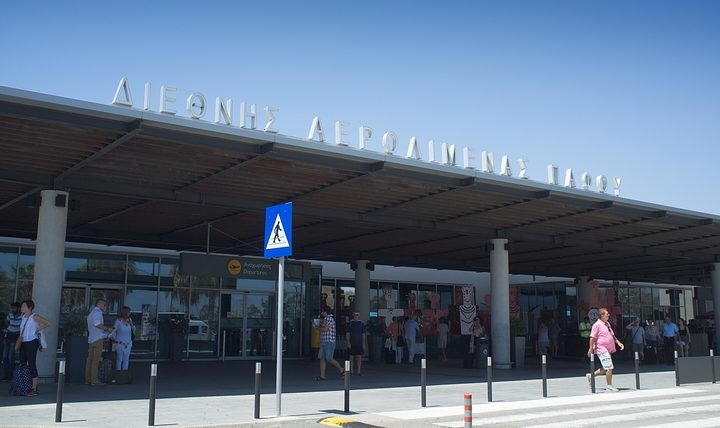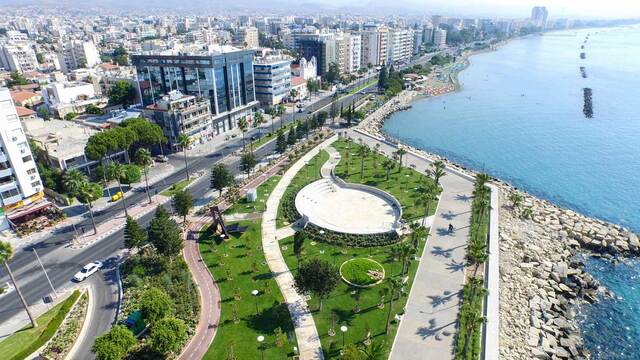Cyprus will lose €1.5 bln in tourist income this year, but all is not lost as latest data suggest the authorities have COVID-19 under control that could usher a holiday wave from July.
Encouraged by the slowdown of the COVID-19 outbreak, Cyprus tourism stakeholders refuse to lay down their optimism, focusing on attracting tourists from neighbouring countries also faring better with the virus.
Cyprus Deputy Ministry of Tourism feels the industry could start a revival sometime in July with the first, but limited, arrival of tourists if things go to plan.
Acknowledging the importance of tourism in efforts to jump-start the economy, the Deputy Ministry is taking actions to help the sector prepare for ‘the day after’, both in the short and medium-term.
It has already started campaigning in selective countries while preparing holiday packages to encourage local tourism.
Tourism Minister Savvas Perdios said Cyprus’ economy will see a loss of €1.5 bln in tourism income as 60% of all bookings will be cancelled.
In comments to CyBC state radio, Perdios said he expects to see the tourist season launch in late summer at a slow pace as not all markets will have access to Cyprus.
As for key markets, Britain, and Russia, from which Cyprus receives the largest share of tourists, they will open at a later stage.
“We hope to know in a few weeks when tourists will be able to come from these countries”.
Perdios also hopes that not everything has been lost.
“The important thing is that travel agent have Cyprus in mind…there are positive signs from Germany, Switzerland, Austria, the Nordic countries, Greece, Israel and perhaps the Netherlands”.
He expects to see airlines providing attractive offers sometime in July.
“We are in constant contact through teleconferences with Hermes Airport, the Ministry of Transport and various airlines to decode their intentions.”
Perdios said his junior ministry will also be focusing on promoting Cyprus as a holiday destination from autumn, up until April 2021.
Local tourism will also be promoted to fill the gap from overseas visitors – although domestic tourists only account for 6%.
“This will be achieved in a targeted manner, by promoting domestic tourism programs with the revival of “short getaways”.
This will include three-day and four-day holiday packages throughout the island, while also subsidising one-day excursions”.
Tourism stakeholders hit by the coronavirus crisis will be given more breathing space, as a bill is being prepared which will allow hoteliers and tour operators to issue state-backed vouchers to clients who were forced to cancel their Cyprus trip.
Cyprus travel agents are also optimistic that a part of the season can be salvaged as the majority of bookings for late summer have yet to be cancelled.
The Association of Cyprus Travel Agents (ACTA) is not ready to surrender before the war is over and is trying hard to keep those bookings from being cancelled.
Talking to the Financial Mirror, Vassilis Stamataris, chairman of ACTA, said the association is also trying to convince tour operators and holidaymakers who have cancelled bookings to reschedule them towards the end of summer and September, as the weather is still warm then.
“We are in constant contact with tour operators trying to piece together the picture we have before us regarding bookings while trying to save bookings by rescheduling them for later on in the year,” said Stamataris.
He did, however, say that stakeholders have thrown in the towel when it comes to bookings made for the months of March and April, there is nothing they can do.
“Our efforts are concentrated on bringing tourists from countries which have similar or better control over the spread of the virus than Cyprus.”
Stamataris said that the emphasis is on Greece, as the proximity and ties on a number of levels between the two countries will facilitate the flow of tourists both ways.
“The spread of the virus in Greece is at similar levels with Cyprus, with the two countries being good examples of countries who are bringing the virus under control,” said Stamataris.
He said ACTA along with its Greek counterpart, are working on convincing authorities to promote further collaboration, promoting destinations in the two countries as if they would for internal tourists.
The day after
Hoteliers, on the other hand, do not appear so optimistic, preferring not to focus on when hotels will be able to welcome tourists from abroad as much as concentrating on what services tourist enterprises will be able to offer.
In comments to the Financial Mirror, Angelos Loizou, special advisor for the Association of Cyprus Tourist Enterprises (ACTE) said that hoteliers are more concerned about overturning the crisis into an opportunity for a new beginning rather than a jump-start.
“The day after will bring about changes not only in Cyprus but in the tourism sector worldwide.”
He commented that holidaymakers will be looking for getaways at safe destinations not far from home.
That is why, hoteliers are more concerned over being able to offer services within the new conditions, convincing tourists that Cyprus and its hotels are safe.
“All stakeholders will need to pull together to make sure that protocols and measures are preserved at airports, hotels and other tourist enterprises,” said Loizou.
“Authorities will have the final say from where tourists will come from and under which conditions, i.e. whether they will have to have a health certificate or a test upon arrival,” he added.
Loizou said Cyprus authorities will have to clarify to hoteliers what support measures they are offering hotels, so they know where they stand when they are able to reopen.
He said that one of the pressing issues has to do with state guarantees for some €2 bln worth of loans which are to be granted by Cyprus banks to businesses in trouble due to the crisis.
Loizou said that in the meantime, those hoteliers who do decide to open their businesses will turn to local tourists, as there is a large number of Cypriots prefer to travel abroad.
“Hotels opting to open this season should focus on attracting Cypriots, as this will benefit them in two ways. One they will be able to keep their businesses running to some extent, and two, they can take advantage of the opportunity to ‘test drive’ how their hotels cope under the new conditions.”









